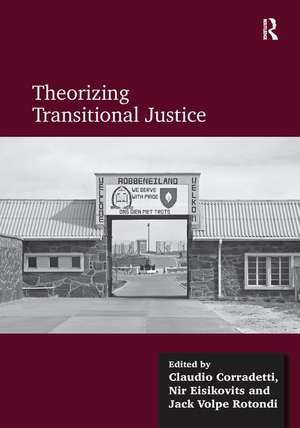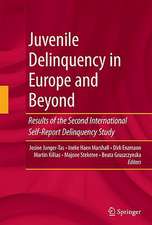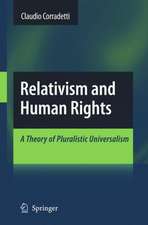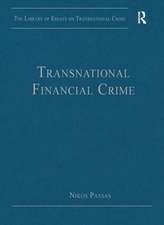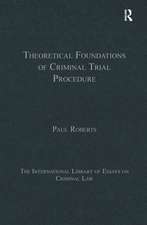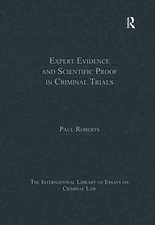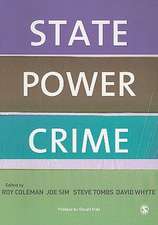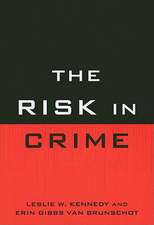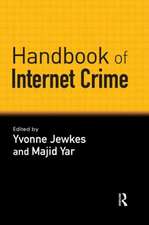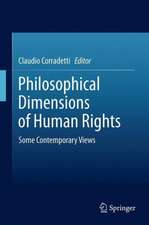Theorizing Transitional Justice
Autor Claudio Corradetti, Nir Eisikovitsen Limba Engleză Paperback – 2 dec 2016
| Toate formatele și edițiile | Preț | Express |
|---|---|---|
| Paperback (1) | 299.62 lei 6-8 săpt. | |
| Taylor & Francis – 2 dec 2016 | 299.62 lei 6-8 săpt. | |
| Hardback (1) | 768.10 lei 6-8 săpt. | |
| Taylor & Francis – 28 ian 2015 | 768.10 lei 6-8 săpt. |
Preț: 299.62 lei
Preț vechi: 341.62 lei
-12% Nou
Puncte Express: 449
Preț estimativ în valută:
57.34€ • 59.52$ • 47.81£
57.34€ • 59.52$ • 47.81£
Carte tipărită la comandă
Livrare economică 24 martie-07 aprilie
Preluare comenzi: 021 569.72.76
Specificații
ISBN-13: 9781138637610
ISBN-10: 1138637610
Pagini: 276
Dimensiuni: 174 x 246 mm
Greutate: 0.46 kg
Ediția:1
Editura: Taylor & Francis
Colecția Routledge
Locul publicării:Oxford, United Kingdom
ISBN-10: 1138637610
Pagini: 276
Dimensiuni: 174 x 246 mm
Greutate: 0.46 kg
Ediția:1
Editura: Taylor & Francis
Colecția Routledge
Locul publicării:Oxford, United Kingdom
Notă biografică
Claudio Corradetti is research and teaching fellow at the Faculty of Law, University of Oslo. Corradetti holds a Doctorate in Political Theory from LUISS Rome, a Master of Philosophy from the University of London and a post-graduate Diploma in European Public Law from the European Group of Public Law, EPLO, Athens. He has been visiting at Cornell, Oxford, and the European University Institute, Florence. He was awarded a visiting research and teaching grant at McGill University, Montreal. He has published widely in books and international journals. Some of his most recent works include Corradetti, Claudio (2013). What does cultural difference require of human rights? In Cindy Holder & David A. Reidy (ed.), Human rights: the hard questions. Cambridge University Press. ISBN 9780521176262. pp.136-150; C.Corradetti, (2013). Philosophical issues in transitional justice theory: a (provisional) balance. Politica e Società , Il Mulino, Bologna, pp. 185- 220. Nir Eisikovits received his Ph.D. in legal and political philosophy from Boston University in 2005; prior to that he studied law in Tel Aviv. He is Associate Professor of Philosophy at Suffolk University in Boston where he co-founded and directs the Graduate Program in Ethics and Public Policy. He writes primarily on political reconciliation, transitional justice and the ethics of war. Eisikovits is author of Sympathizing with the Enemy: Reconciliation, Transitional Justice, Negotiation (Brill and Republic of Letters, 2009), as well as the forthcoming Kill Me Tomorrow: A Theory of Truces (Palgrave Macmillan, 2015). Recent articles include 'Asymmetrical Warfare and Conscientious Objection' in the International Journal of Applied Philosophy (with Evan Feinhauer), 'Peace versus Justice in Transitional Settings' in Politica e Societa and a thoroughly revised and updated entry on ’Transitional Justice’ in the Stanford Encyclopedia of Philosophy. Nir will serve as guest editor of a forthcoming issue of Theoria on the
Recenzii
’This volume is an excellent and intellectually challenging choice for anyone who is interested in probing the conceptual, normative, and theoretical underpinnings of transitional justice. The book pushes the boundaries of the field through its thoughtful critiques of given assumptions, by adding new perspectives, and by linking to strands of theory that have been neglected in transitional justice scholarship so far.’ Thomas Brudholm, University of Copenhagen, Denmark ’This diverse and philosophically rich collection brings together some of the most thoughtful and challenging voices in current debates. Theorizing Transitional Justice broadens and clarifies the concepts and structures underpinning policies of reconciliation and reckoning after conflict - connecting them to deep theories of justice and agency, as well as art and emotion. It will be immensely valuable to scholars and students, theorists and practitioners.’ Alice MacLachlan, York University, Canada ’Offers an exceptionally diverse array of normative theory and research relating to the evolving field of Transitional Justice.’ Ruti Teitel, New York Law School, USA
Cuprins
Introduction; Part I Is it Always Necessary to Account For Past Wrongs?; Chapter 1 Forgetting after War: A Qualified Defense, Jack Volpe Rotondi, Nir Eisikovits; Chapter 2 Peace without the Past? Truth, Transition and the Northern Ireland Case, Cheryl Lawther; Part II Punishing after War; Chapter 3, Juan Espindola; Chapter 4 Transitional Justice, Retributive Justice and Accountability for Wrongdoing, Colleen Murphy; Part III Transitional Justice as a Vehicle of Structural and Institutional Change; Chapter 5 Transitional Justice as Structural Justice, Krista K. Thomason; Chapter 6 Justice-Seeking in Settler States: A Model for Thinking about 'Justice' in Transitional Societies, Michael Phillips; Chapter 7 Structural Causes of Conflict and the Superficiality of Transition, Pádraig McAuliffe; Part IV Transitional Justice and Political Reconciliation; Chapter 8 Reconcilable Resentments? Jean Amery's Critique of Forgiveness in the Aftermath of Atrocity, Grace Hunt; Chapter 9 A Theory of National Reconciliation: Some Insights from Africa, Thaddeus Metz; Chapter 10, Monica Mookherjee; partV Transitional Justice and the Arts; Chapter 11 Transitional Justice and the Arts: Reflections on the Field, Sanja Bahun; Chapter 12 Democratic 'Sacred Spaces': Public Architecture and Transitional Justice, Mihaela Mihai; partVI Defining the Parameters of Transitional Justice; Chapter 13 Transitional Times, Reflective Judgement and the 'HÅs mÄ“' Condition, Claudio Corradetti; Chapter 14 Further Explorations of the Social Death Hypothesis, Claudia Card; Chapter 15 Making Reparations Possible: Theorizing Reparative Justice, Margaret Urban Walker; partVII Case Studies; Chapter 16 Trust and Commitment: How Athens Rebuilt the Rule of Law, Paul Gowder; Chapter 17 Transitional Justice in Post-Genocide Rwanda: An Integrative Approach, Lynne Tirrell;
Descriere
This book addresses the theoretical underpinnings of the field of transitional justice and aims to clarify the theoretical profiles of transitional justice strategies. The study is organized along crucial intersections which evaluate aspects connected to the genealogy, nature, scope and most appropriate methodology for the study of transitional justice, whilst the specific transitional instruments of war crime tribunals, truth commissions, administrative purges, reparations and historical commissions are considered throughout. The book brings together some of the most original writings from established experts as well as from promising young scholars in the field.
